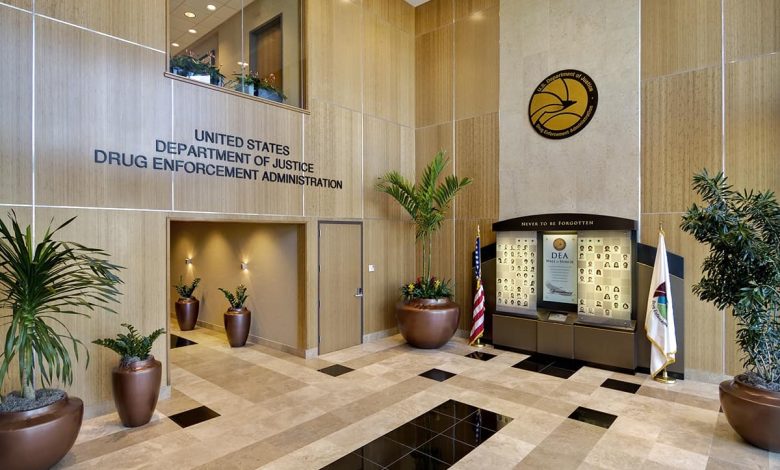2 Million DEA Registrants Affected By New CME Mandate

The Consolidated Appropriations Act of 2023 introduces a new mandate that affects all physicians and healthcare providers registered with the Drug Enforcement Administration (DEA). According to this mandate, these professionals are required to complete an 8-hour Continuing Medical Education (CME) training on managing and treating opioid and other substance abuse disorders. The mandate went into effect on June 27, 2023.
This new requirement reflects the growing concern and recognition of the opioid crisis and the need for healthcare providers to be adequately trained in addressing substance abuse disorders. By implementing this mandate, the government aims to ensure that physicians and healthcare providers have the necessary knowledge and skills to effectively manage and treat patients struggling with opioid and other substance abuse.
The 8-hour CME training will cover various aspects of managing substance abuse disorders, including the identification and assessment of patients with these conditions, evidence-based treatment approaches, strategies for prevention and harm reduction, and considerations for managing pain in individuals with a history of substance abuse. The training will likely focus on best practices, current guidelines, and emerging research in the field of addiction medicine.
For DEA-registered physicians and healthcare providers, complying with this mandate means allocating time and resources to complete the 8-hour training. While the exact details of how this training will be provided and accessed may vary, healthcare professionals will need to ensure that they meet this requirement within the specified timeframe to remain in compliance with the law.
New DEA registrants must also comply. Veterinarians are exempt.
A DEA registration is required to prescribe any controlled substance. The DEA categorizes these as Schedule I-V, with V being the least likely to be abused (Table 1). For example, opioids like fentanyl, oxycodone, and morphine are Schedule II. Medications without abuse potential are not scheduled.
| Table 1. DEA Schedule (Abbreviated) |
| Schedule I |
| Medications with no accepted medical use and subject to abuse (ie, heroin, lysergic acid diethylamide [LSD]) |
| Schedule II |
| Medications with acceptable medical use but high abuse potential (ie, fentanyl, morphine, oxycodone) |
| Schedule III |
| Medications with intermediate abuse potential (ie, anabolic steroids, ketamine, testosterone) |
| Schedule IV |
| Medications with abuse potential (ie, alprazolam, diazepam, tramadol) |
| Schedule V |
| Medications with the lowest abuse potential amongst controlled substances (ie, dextromethorphan, pregabalin) |
Will 16 Million Hours of Opioid Education Save Lives?
One should not underestimate the sweeping scope of this new federal requirement. DEA registrants include physicians and other healthcare providers such as nurse practitioners, physician assistants, and dentists. There are nearly 2 million DEA registrants, all of whom must now dedicate 8 hours to complete the DEA-mandated CME. That is 8 hours per provider × 2 million providers: 16 million hours of CME!
Many states already require 1 or more hours of opioid training and pain management as part of their re-licensure requirements (Table 2). To avoid redundancy, the DEA-mandated 8-hour training satisfies the various states’ requirements.
| Table 2. State CME Opioid and Pain CME Requirements for MDs* | |
| Alabama | Two credit hours every 2 years |
| Alaska | 2 hours every 2 years |
| Arizona | 3 hours every 2 years |
| California | 12 hours or units one time |
| Connecticut | 1 hour every 6 years |
| Delaware | 2 hours every 2 years |
| Washington, DC | One course every 2 years |
| Florida | 2 hours every 2 years |
| Georgia | 2 hours every 2 years |
| Illinois | 3 hours |
| Indiana | 2 hours |
| Iowa | 2 hours every 5 years |
| Kentucky | 4.5 hours every 3 years |
| Louisiana | 3 hours one time |
| Maine | 3 hours every 2 years |
| Maryland | 1 hour every 2 years |
| Massachusetts | Three credit hours each renewal cycle |
| Michigan | 3 hours every 3 years |
| Mississippi | 5 hours |
| Nebraska | 3 hours every 2 years |
| Nevada | 4 hours every 2 years |
| New Hampshire | 3 hours every 2 years |
| New Jersey | 1 hour every 2 years |
| New Mexico | 5 hours every 3 years |
| New York | 3 hours |
| North Carolina | 3 hours every 3 years |
| Ohio | 20 hours every 2 years |
| Oklahoma | 1 hour every 3 years |
| Oregon | 6 hours one time |
| Pennsylvania | 4 hours once for initial licensure; 2 hours every 2 years |
| Rhode Island | 4 hours every 2 years |
| South Carolina | 2 hours every 2 years |
| Tennessee | 2 hours every 2 years |
| Texas | 2 hours every 2 years |
| Utah | 3.5 hours |
| Vermont | 2 hours every 2 years |
| Virginia | 2 hours every 2 years |
| Washington | 1 hour one time |
| West Virginia | 3 hours every 2-year renewal cycle |
| Wisconsin | 2 hours every 2 years |
*For states not listed, check with local medical associations.
An Uncompensated Mandate
Physicians are known for their dedication to lifelong learning and their continuous pursuit of educational opportunities to stay up to date with the latest advancements in their field. While some physicians are fortunate enough to have access to continuing medical education (CME) time and stipends provided by their employers, there is a significant portion of the medical community, including approximately 50,000 locum tenens doctors, who do not receive such benefits.
Locum tenens physicians, who work on a temporary or contractual basis, often face unique challenges when it comes to accessing educational resources. Unlike their counterparts who have CME time and funding allocated by their employers, locum tenens doctors must bear the burden of organizing their own educational pursuits. This means that attending a CME course or program comes with additional challenges for these physicians.
One significant challenge faced by locum tenens doctors is the potential loss of income and patient care time associated with participating in a CME course. For these physicians, every day spent attending educational activities translates to a day without seeing patients and earning income. This loss can be particularly burdensome, as locum tenens doctors often rely on their work to sustain their livelihoods.
Despite the enthusiasm these physicians may have for the new CME course and their genuine desire to engage in professional development, the financial implications of complying with the mandatory educational obligation can be discouraging. It places an uncompensated burden on locum tenens doctors, requiring them to make sacrifices in terms of patient care and financial stability in order to fulfill the educational requirement.
Addressing the issue of uncompensated mandates for locum tenens doctors is crucial to ensure equitable access to ongoing medical education. Providing financial support, time allowances, or alternative arrangements for locum tenens physicians to participate in CME activities would help alleviate the financial strain and ensure that these physicians can continue to grow professionally without sacrificing patient care or income.





